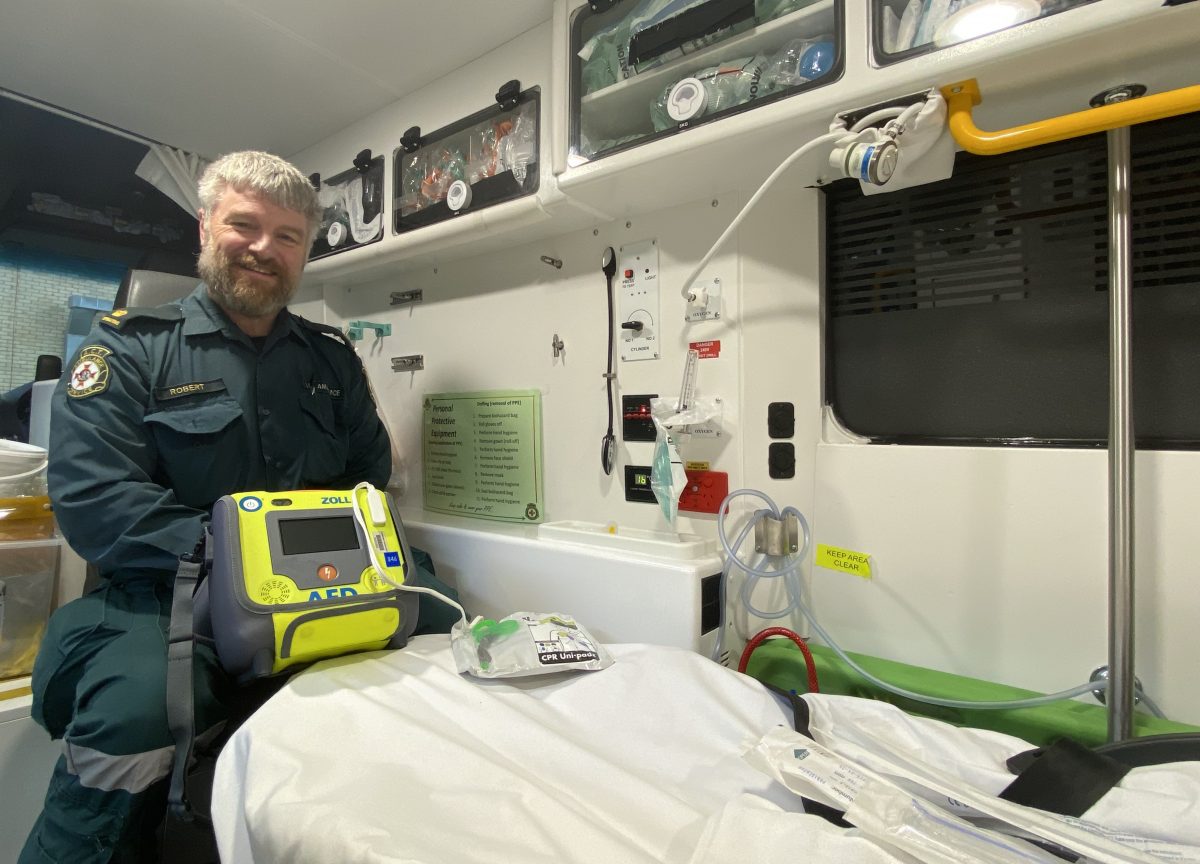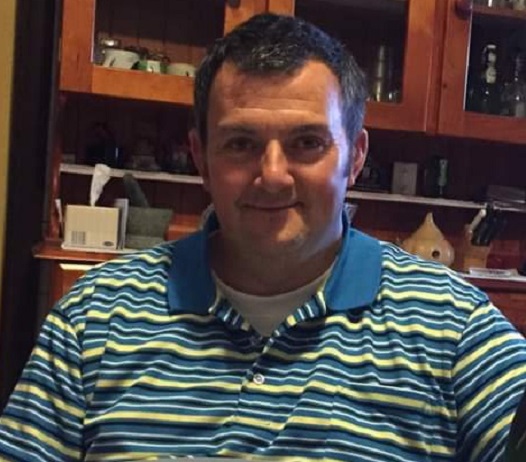
Paramedic Robert Wiggins has urged everyone to brush up on their CPR skills, which could save someone’s life. Photo: Claire Fenwicke.
For Giovanni Nappi, the first signs he was going into cardiac arrest were nausea and cramps under his ribs.
“I sat on the floor when I started feeling a bit more pain, so I called my sister from downstairs and told her I wasn’t feeling well, that she better call an ambulance,” he said.
The 50-year-old had stronger pains under his rib cage, which then went away for a couple of minutes.
“But then they came back strong,” he said.
Paramedics arrived at his Wanniassa home not long after and gave him some painkillers.
“From there, I blacked out, I can’t remember a thing,” Giovanni said.
That’s because he had suffered his first heart attack of the day, on 20 August.
The paramedics managed to get him down the stairs of his home and into the ambulance before he went into cardiac arrest again.
“When I woke up, I found myself in ICU,” Giovanni said.
“The paramedics cracked four of my ribs while doing CPR, which was painful. It’s still painful now, but that’s alright.
“They saved my life.”
Giovanni was given a shot at surviving because the paramedics were able to start CPR straight away.
But not everyone has a heart attack in front of medical professionals.

Giovanni Nappi owes his life to the paramedics who administered CPR after he suffered two cardiac arrests in an hour. Photo: Supplied.
Seconds count in a cardiac arrest, which is why all Australians have been urged to brush up on their CPR skills this Restart a Heart Day (16 October).
Nine out of ten people won’t survive an out-of-hospital cardiac arrest.
ACT Ambulance Services’ (ACTAS) Robert Wiggins was one of the paramedics in Giovanni’s home that day.
“We figured out quickly Giovanni was very, very sick,” he said.
“He was in tremendous amounts of pain, not the classic chest pain signs that you’d expect … it was all-over general, global pain.”
A heart attack can present with dizziness, shortness of breath, nausea, and sometimes with no pain at all.
For women, the signs can be even more subtle.
“It could be a twinge here or an upset tummy there,” Robert said.
“If you’re in doubt, call an ambulance … if you feel unwell, you should get it checked because you never know.”
If triple zero is called, an operator can talk you through your symptoms or assist those on the other end with administering CPR.
But Robert said you don’t need to get hung up on the right number of compressions or breaths, it’s more important to begin as soon as possible.
“If someone’s been in cardiac arrest for a while before our arrival, there’s not a lot we can do, that decision to even start CPR is taken away from us,” he said.
“But if you just start, you’re keeping blood to the heart, blood to the brain, that gives us something to work with.
“The reason many people don’t start giving CPR is they can’t remember all the numbers, so they don’t want to do any harm … but I personally don’t care about someone’s ability to remember all the ratios – just start.”
If you come across someone on the street who has stopped breathing, and are concerned about your own health or safety, chest compressions can be enough, without also breathing into their mouths.
“If you don’t know the person you’re giving the kiss of life to, you can just do chest compressions,” Robert said.
“The mechanics of it works without you having to breathe for them … if their mouth is open and not full of food or vomit, they can passively breathe when getting compressions.
“This makes our job achievable. It may not always be achievable to bring someone back but it gives us a chance.”
Many sporting fields and shopping centres have defibrillators on hand, which a second person can fetch during an emergency.
Robert stressed updating your CPR training with a first aid course is vital, as you are more likely to have to use it on someone you know.
“It doesn’t matter if you’re fit and healthy, it could happen while you’re playing sport, sitting at your desk,” he said.
“Most first aid happens in the home … it’s not to look after a stranger, it’s to look after a friend or loved one.”
Giovanni owes his life to the paramedics who performed CPR, and urged everyone to learn this life-saving skill.
“I had two cardiac arrests in less than an hour, it was a big effort to keep me alive … if I had a million dollars, I’d give it to them,” he said.
“Everyone can learn CPR, because it does save a life.”












